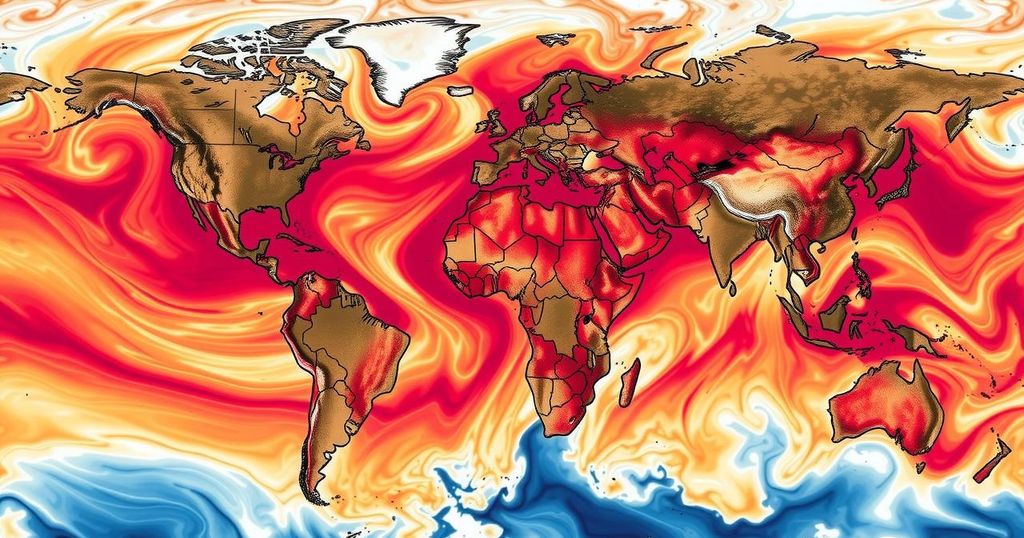The climate crisis has intensified, with 2024 expected to be the hottest year on record as global temperatures surpass 1.5°C above preindustrial levels. This rise has prompted urgent calls for enhanced climate action. Despite pledges to reduce fossil fuels, CO2 emissions continue to increase, resulting in devastating weather events and significant economic losses. The need for effective climate policies has never been clearer.
The climate crisis has reached alarming levels, with projections indicating that 2024 may become the hottest year on record. Recent data from the European Union’s Copernicus Climate Change Service reveals that the global average temperature for November was 1.62°C above preindustrial levels, contributing to an annual average increase to 1.60°C. This is the first instance where global temperatures have surpassed the critical 1.5°C threshold, raising urgent concerns regarding the need for immediate action against climate change.
Samantha Burgess, the deputy director of Copernicus, highlighted the pressing necessity for ambitious measures to combat rising temperatures. Despite global commitments to phase out fossil fuels, carbon dioxide emissions remain on the rise. Furthermore, the year has been marked by unprecedented extreme weather events, including devastating wildfires across North and South America, which have resulted in estimated economic losses amounting to $320 billion. These developments underline the growing urgency for effective climate policies that address both mitigation and adaptation strategies to safeguard vulnerable communities.
As the consequences of climate change become increasingly severe, there is an imperative need for comprehensive adaptation strategies to avert future risks. The current context reveals a clear and escalating environmental challenge that necessitates decisive and coordinated action from governments and global leaders in climate policy.
Understanding the current climate crisis necessitates analysis of rising global temperatures and their implications. The rise in average global temperature, as reported by authoritative sources like the Copernicus Climate Change Service, signals a crucial environmental tipping point. With recent data indicating that temperatures have surpassed important thresholds, the need for immediate and effective climate action is underscored. Historical weather patterns, coupled with contemporary data, highlight the critical challenges faced by communities worldwide due to climate change, demanding adaptive and mitigative responses.
In conclusion, the projections for 2024 as the hottest year on record serve as a stark wake-up call for global action on climate change. With CO2 emissions continuing to rise despite international commitments, and severe weather events causing substantial economic impact, there is an urgent need for comprehensive climate strategies. Policymakers must advocate for both mitigation and adaptation to ensure the resilience of vulnerable populations in the face of escalating environmental threats.
Original Source: shiawaves.com






